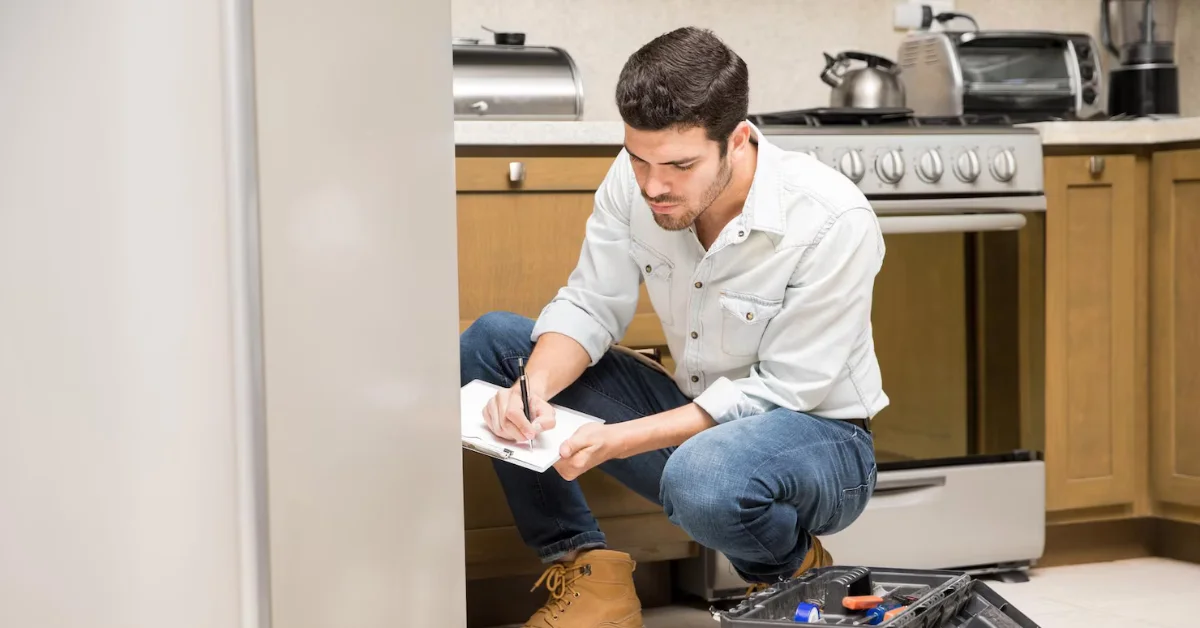Self-Fix vs Expert Help: How to Decide When an Appliance Breaks Down

Your appliance just quit on you, and now you’re standing there wondering if you should grab a screwdriver or pick up the phone. It’s not always an easy call. Sure, tackling it yourself might save you a few hundred bucks, but mess it up and you could be looking at an even bigger bill.
The thing is—some repairs are pretty manageable if you’ve got a free afternoon. Others? They’re way over most people’s heads and honestly not worth the risk. Knowing which is which can save you from turning a fixable problem into a complete disaster.
Common Appliance Issues You Can Fix Yourself
Before you dial anyone, try the obvious stuff first. Your washer won’t drain? Nine times out of ten, it’s a clogged filter or the drain hose got kinked. Fridge not keeping things cold? Those condenser coils are probably caked with dust and pet hair. Dryer taking forever? Clear that lint trap and check if the exhaust vent’s blocked.
There are plenty of other fixes that don’t require a degree. Swapping worn fridge door seals, cleaning gunked-up dishwasher spray arms, flipping a tripped breaker, replacing a busted oven heating element—this stuff’s straightforward.
You’re looking at parts that cost anywhere from $20 to $100. Just remember to unplug the thing or kill the power at the breaker box before you start.
When It’s Time to Call an Expert
Signs of a Serious Problem
Some situations need a professional, period. Smell gas anywhere near your stove or dryer? Call someone now. Seeing sparks, smoke, or weird grinding noises? Same deal. Water showing up where it shouldn’t be? Don’t mess with that. These involve gas lines and electrical systems that can seriously hurt you.
Stay away from refrigerant leaks, dead compressors, fried control boards, or blown motors. That’s specialty work. Got something fancy like a Sub-Zero? Those things are basically computers that keep food cold. If you need specialized repair services, companies like https://prime-fix.com/ offer expert technicians trained on premium brands. For Sub-Zero units specifically, check out https://prime-fix.com/brands/sub-zero/ to connect with professionals. Also, if your appliance is still under warranty and you start taking it apart yourself, you just voided that warranty.
Risks of DIY Repairs
Going the DIY route when you shouldn’t can backfire pretty badly. You might accidentally break something else while you’re in there, turning a cheap fix into having to buy a whole new appliance. And we’re talking about electricity, gas lines, and water here—one wrong move and you’re dealing with shocks, leaks, or a flooded kitchen.
Most newer appliances are packed with circuit boards and sensors that need special diagnostic equipment. You can’t just eyeball it. Buy the wrong part because you guessed wrong? That’s money down the drain, plus you’re still stuck with a broken appliance.
Cost Comparison: DIY Fix vs Professional Repair
Fixing something yourself usually runs you twenty to a hundred bucks for parts, plus your time. Calling a pro? You’re looking at $100 to $400 once you factor in labor and parts, with most repairs averaging around $175 to $250. Could be more if it’s complicated.
But screw up your DIY attempt and now you’re paying for those parts plus the professional to come fix what you broke. That repair that should’ve cost $150 just became $400 or more. On the flip side, good repair companies will usually come back and make it right without charging you again if they mess up.
Think about what the appliance cost you. Got a basic microwave under $400? Maybe take a shot at fixing it. But a $1,500 washer or high-end fridge? That’s not the place to experiment. Pros also get the job done in an hour or two instead of eating up your whole weekend.
Tips for Choosing a Reliable Appliance Repair Service
Not every repair company is worth your time, so do some homework. Hit up Google reviews, check Yelp, look at their Better Business Bureau rating. Pay attention to how they handle complaints—everyone gets one eventually.
Make sure they’re licensed, insured, and bonded. Ask if their techs are certified for your specific brand, especially if you’ve got high-end stuff. Get quotes from at least three places, but don’t just go with whoever’s cheapest—rock-bottom prices usually mean green technicians or surprise fees.
Find out what warranty they offer on the work and parts. Decent companies back their repairs for at least 90 days. Ask upfront what the diagnostic fee is and if they’ll waive it if you proceed. If someone’s being pushy or dodgy about pricing, get another opinion.
Winding Up
Simple stuff like basic maintenance and easy repairs? Go ahead and handle those yourself. You’ll save cash and maybe learn something. But when you’re dealing with complicated systems, anything that could hurt you, expensive equipment, or something still under warranty, bring in someone who knows what they’re doing.
Be real with yourself about what you can handle. Confident the repair’s straightforward? Have at it. But if you’re second-guessing yourself or the problem involves gas, electrical work, or fancy electronics, don’t risk it. Making the smart call keeps you safe and means your appliances will actually work when you need them.
